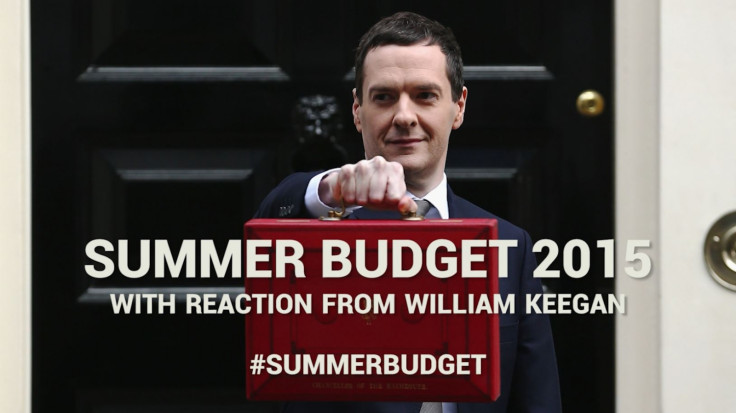Summer budget 2015: George Osborne will slow pace of £12bn welfare cuts from two years to three

George Osborne looks set to slow the rate of welfare cuts and raise the threshold on the 40% rate of income tax when he presents his Summer Budget.
The Chancellor of the Exchequer will be presenting his seventh budget on 7 July. However, it is only his first in an all-Conservative government. The others were presented in the previous coalition government with the Liberal Democrats.
The BBC revealed that Osborne - who will promise "bold" policies that will "secure Britain's future" - is expected to take three years instead of two to reach his £12bn target of welfare cuts - £8bn by 2017/18 and a further £4bn by 2018/9.
The Financial Times reported that in order to soften the blow of the "very difficult" cuts to benefits, the Chancellor will announce a rise in the personal tax allowance, currently £10,500, to £12,500 by the next election, in 2020. This would take most workers on the minimum wage out of the income tax system.
Known knowns of the 2015 Summer Budget
Osborne will set out £12bn in welfare cuts and will announce plans to slash the benefits cap to £20,000 outside of London and £23,000 in the capital.
Tax credits will take a huge hot. Child tax credits are expected to be limited to the first two children in a family.
Inheritance tax threshold to increase to £1m for couples from 2017.
Recipients of the Victoria Cross and George Cross medals will be given a £10,000-a-year "thank you" from the nation instead of the £2,129 that they had received until now.
A relaxation of the Sunday trading laws, allowing shops to stay open for longer.
Making local authority tenants in England who earn more than £30,000 - or £40,000 in London - pay up to the market rent.
He also plans to announce the raising of the 40p tax rate to £42,700 from April 2016 and to £43,300 from April 2017, reaching £50,000 by 2020.
In a draft of his Budget speech, Osborne will tell MPs: "Our long-term economic plan is working. But the greatest mistake this country could make would be to think all our problems are solved.
"You only have to look at the crisis unfolding in Greece as I speak to realise that if a country is not in control of its borrowing, the borrowing takes control of the country."
He will also promise to be "bold in transforming education, bold in reforming welfare, bold in delivering infrastructure, bold in building the 'northern powerhouse', bold in backing the aspirations of working people ... it is a budget that sets the way to secure Britain's future".
The Opposition Labour party said if tax credits – such as in-work credits and housing benefits - were cut back to 2003-4 levels, a saving of £5bn, then 3.7m families in work will suffer an average income loss of £1,400 a year and 300,000 families will fall into relative poverty.
The shadow treasury minister Shabana Mahmood told The Guardian that the minimum wage, which is set to rise to £6.70 an hour in October for workers aged 21 and over, would need to rise overnight by 25% should the government make the predicted changes to tax credits.
"Without tax credits to help them through, those who are working and stuck on low pay simply cannot make ends meet," she said.
© Copyright IBTimes 2025. All rights reserved.





















